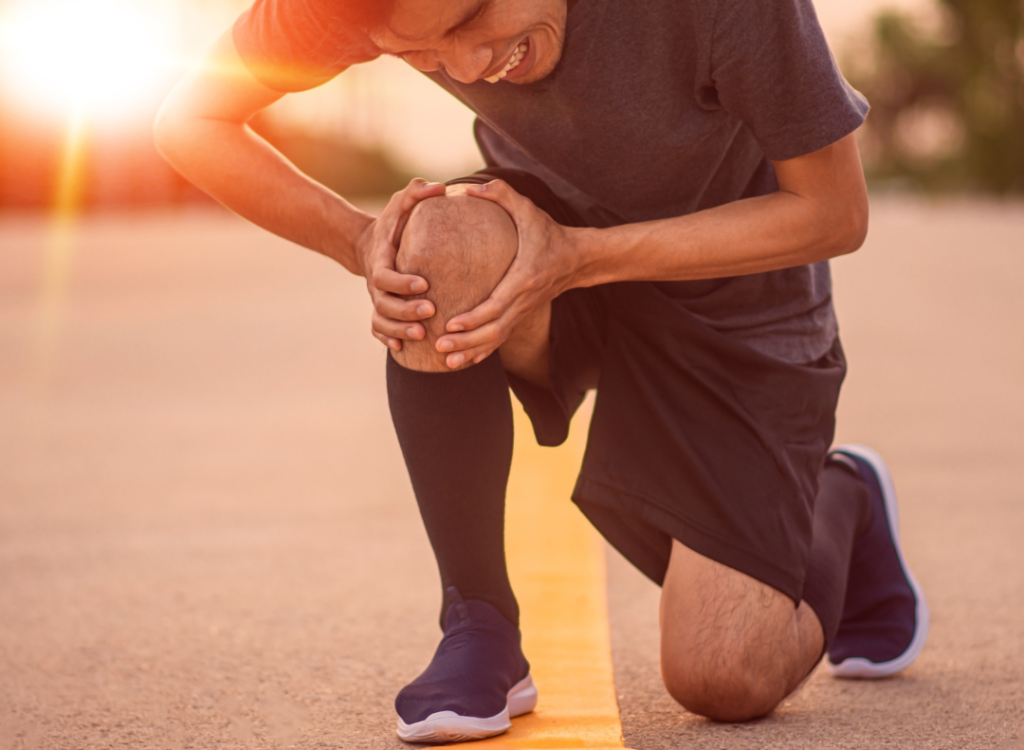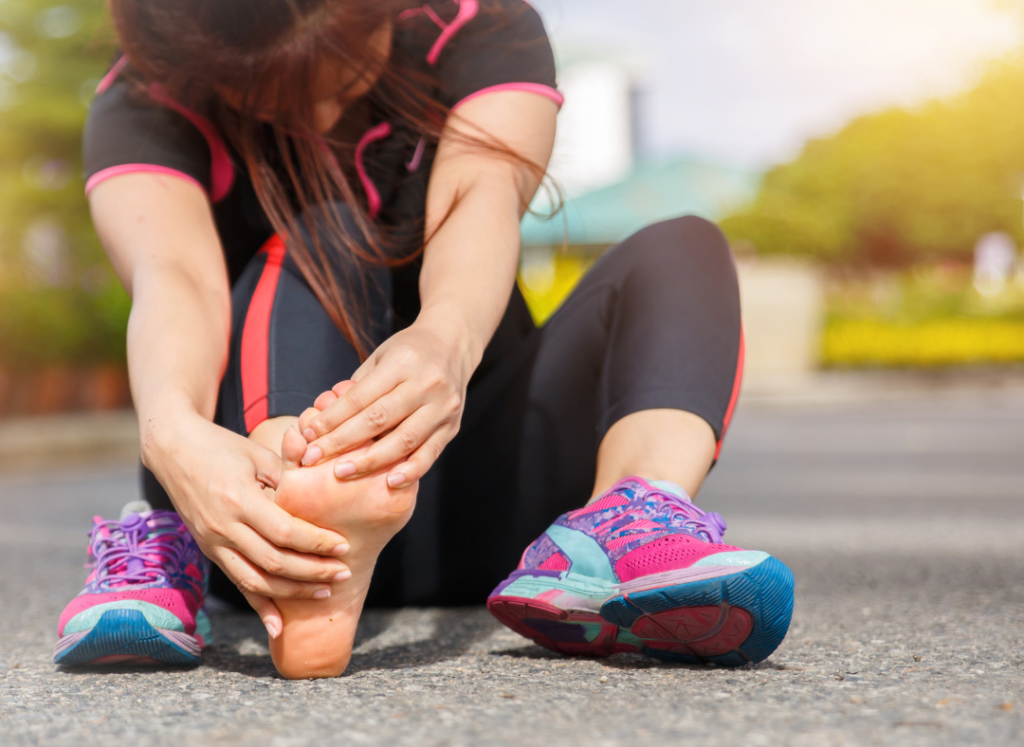When you’ve got foot pain, many people will try anything that promises to get rid…
How To Prevent Injury While Running | Podiatrist Tips

Running takes a large toll on our bodies. Aside from the endurance, strength, and flexibility it requires, it also takes us through various periods of putting all our body weight onto just one leg, which when paired with our natural foot biomechanics, can make many of us prone to overuse injuries. Perhaps this is why up to 70% of runners will sustain at least one running injury each year. So what are some practical things you can start doing today to help prevent injury when running? Here are some of our podiatrist’s top tips.
Get the right shoes for your foot type
Running shoes that are poorly fitting, or aren’t the best fit for your foot type, are a very common cause of running pain and injuries. Our shoes have the power to provide additional (and often much-needed) support and stability to our feet and ankles – or let them flop around and add more stress to our tendons, ligaments and bones. This is why you want to choose running shoes that fit well and are designed for your foot type – as well as your running style and the type of ground you’re mainly running on. Wearing the right shoes can help prevent blisters, plantar fasciitis, and other foot and ankle injuries. Having two pairs of dedicated running shoes that you alternate can also help each shoe recover best and dry out well after each run, notably prolonging the lifespan of both pairs.
Gradually increase your mileage when training
 Many consider pulling out some impressive kilometres a testament to their strength or fitness – but in reality, it’s much more likely to halt you in your tracks with an overuse injury. Increase your mileage slowly and gradually to avoid overuse injuries such as stress fractures, shin splints, and Achilles pain. A general rule of thumb is to increase your weekly mileage by no more than 10% per week. Remember – even though you may not be covering your ideal distances as quickly, you’ll be able to continue running and staying on track, which is the most important thing compared to sitting out training sessions in pain and having weeks of recovery ahead.
Many consider pulling out some impressive kilometres a testament to their strength or fitness – but in reality, it’s much more likely to halt you in your tracks with an overuse injury. Increase your mileage slowly and gradually to avoid overuse injuries such as stress fractures, shin splints, and Achilles pain. A general rule of thumb is to increase your weekly mileage by no more than 10% per week. Remember – even though you may not be covering your ideal distances as quickly, you’ll be able to continue running and staying on track, which is the most important thing compared to sitting out training sessions in pain and having weeks of recovery ahead.
Warm-up before running
Do some light stretching, jumping jacks, or a short walk to get your muscles warmed up before you start running. Warm-ups help increase your body temperature which increases the blood flow to your muscles, reduces muscle stiffness, improves your joint mobility, helps improve your neuromuscular coordination, and even supports your mental preparedness for the run ahead.
Cross-train
Incorporate other forms of exercise, such as cycling or swimming, into your training routine. Cross-training can help reduce the risk of overuse injuries, as well as strengthen muscles that may not be used as much while running.
Rest and recover adequately
Proper rest and recovery are crucial for runners to achieve optimal performance, prevent injuries, and maintain overall health. Adequate rest and recovery allows the body to heal itself from the microdamage sustained during running, promotes muscle building and repair, enhances your performance in subsequent runs, supports your immune system which can be compromised by overtraining, and best supports your mental health, mood and overall well being.
Don’t ignore aches and pains
 Pain is your body’s way of telling you that something isn’t quite right – you’ll never get pain for no reason. Listen to your body and try to find out what’s going on. In our experience, a lot of common injuries occur when runners decide to ‘push through’ the pain in the hopes that it’s nothing and that it’ll just go away. They then sustain an avoidable injury and spend weeks recovering and taking it easy, if not longer. If you’re worried – come in and get it checked.
Pain is your body’s way of telling you that something isn’t quite right – you’ll never get pain for no reason. Listen to your body and try to find out what’s going on. In our experience, a lot of common injuries occur when runners decide to ‘push through’ the pain in the hopes that it’s nothing and that it’ll just go away. They then sustain an avoidable injury and spend weeks recovering and taking it easy, if not longer. If you’re worried – come in and get it checked.
Focus on proper form and technique
Work on improving your running form and technique to reduce the risk of injuries such as runner’s knee, iliotibial band syndrome, and shin splints. Maintaining a good running form helps distribute the forces generated during running evenly across the body, improves your energy efficiency so you can optimise your use of oxygen which improves your performance, supports your optimal speed, reduces fatigue and helps prevent the development of muscle imbalances.
Stay well hydrated before, after and during running
Dehydration can lead to a range of negative consequences for runners, such as decreased performance, muscle cramps, fatigue, and even heat exhaustion or heat stroke. Proper hydration is necessary to maintain optimal physical and mental performance during a run, aiding in regulating your body temperature, delivering nutrients to cells and removing waste products.
Incorporate regular strength training into your routine
Working to strengthen the muscles of the feet, leg and core can make a big difference to your running. The stronger your muscles, the more you’ll be able to handle and the longer you’ll be able to keep going. Good muscle strength also reduces your risk of injury, improves your performance and endurance, and helps you maintain good form.
